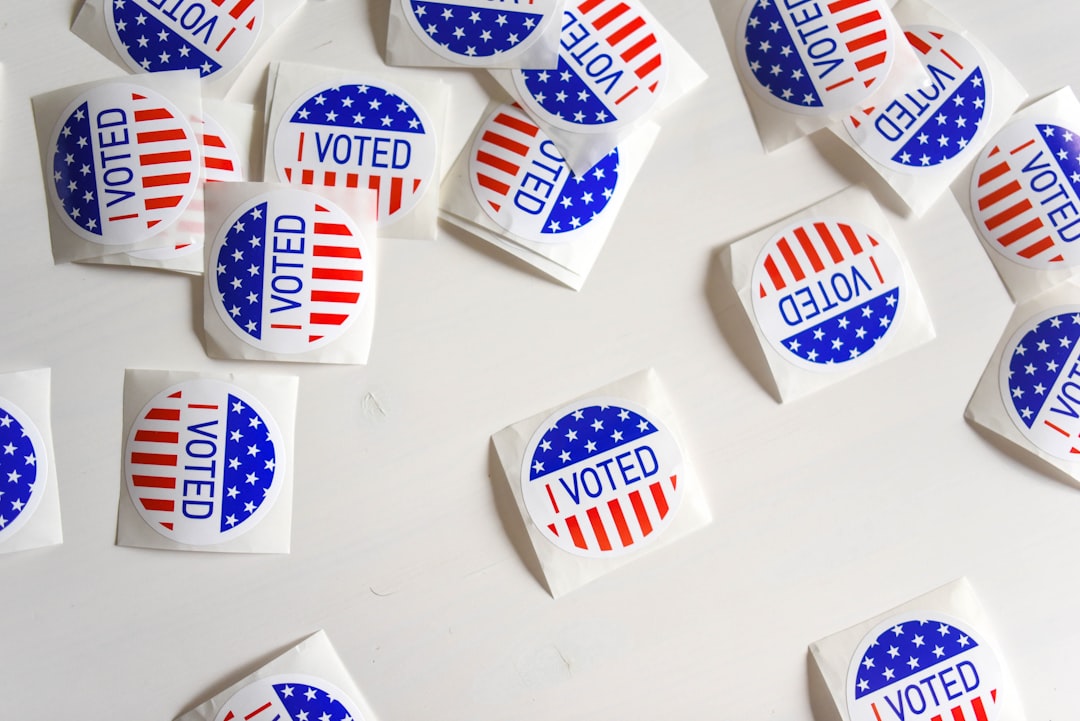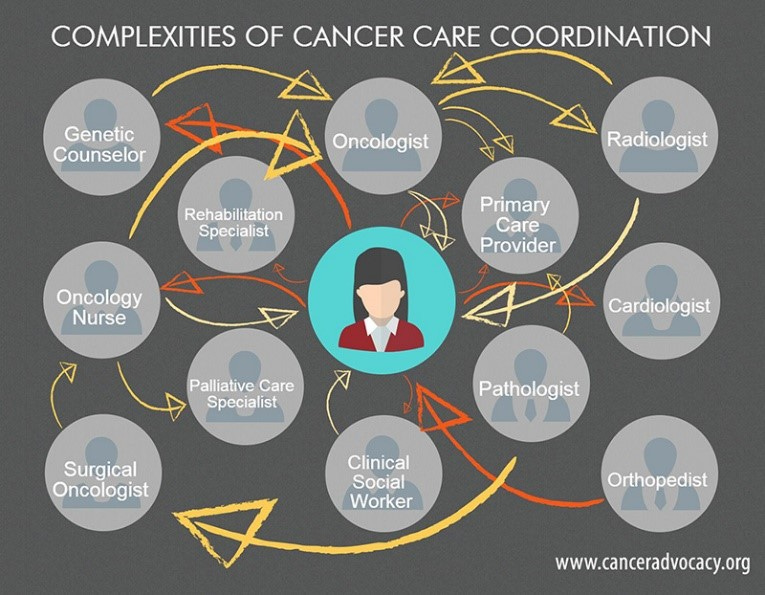
Hello everyone and Happy Fall!
Tomorrow is Election Day. Although national media would like to direct our attention to other issues, it is possible to be a single-issue voter for policies that benefit cancer survivors. We can ask for more by voting for people who share our values of demanding excellent care and support from diagnosis to survivorship.
Today I’m excited to introduce you to my friend, Veronika Panagiotou, PhD. Dr. Panagiotou is a Non-Hodgkin’s Lymphoma survivor and also manager of advocacy and programming for the National Coalition for Cancer Survivorship (NCCS).
NCCS is the oldest cancer survivor-led non-profit organization in America. They are a non-partisan advocacy group who promotes national policy change to ensure quality cancer care for all touched by cancer.
Veronika will tell you more about how voters she never met saved her life and how she uses her voice to save others.
Next week, I’ll be back with my hot take on what Mary Poppins didn’t teach us about cancer…
Thanks, Stacy! And hello everyone. Given election day is tomorrow, I hope that you are not only registered to vote but have either voted by mail or made a plan to get to your polling place to cast your ballot. Thank you for dedicating the time to making your voice heard.
For those that feel that your vote simply doesn’t amount to anything these days, I hope to change your mind.
Voting saves lives.
I know this seems like an obnoxious statement. It may even seem laughable these days if you are on social media or flip through cable news. Our government’s ability to function leaves a lot to be desired no matter what political ideology you identify with.
However, our elected representatives make policy decisions on very important aspects of our lives like health care. The policies they support impact our ability to make decisions about our own health based on the laws and regulations implemented by our government.
Your vote has an impact on the affordability, access, and quality of health care for everyone in your community. Your vote also has the opportunity to save lives like mine.
The Affordable Care Act (ACA) saved my life and led me into the field of health care advocacy.
My Story:
On the eve of my 25th birthday, I was finishing my final year of my master’s at the University of Pittsburgh, working part-time at the local children’s museum, and planning for my future. I spent a few weeks fighting flu-like symptoms and even visited my primary care physician. On December 2nd, 2013, I was treated in the Emergency Department and was diagnosed with Non-Hodgkin’s Lymphoma. What I did not have at the time was health insurance.
At the time, my parents could not keep me on their plan and in the private insurance market, my preexisting conditions gave me only unaffordable options. Like so many of my peers nearing graduation and with limited funds, I gambled that I could stay healthy during the time it took me to find a full-time job. The odds were not in my favor, and I lost that bet when an unforeseen medical condition entered the picture.

The first question I asked the oncologist was, “Will you treat me without insurance?” I knew the Affordable Care Act (ACA) had passed but was unsure if it would start in time to cover my treatments. For the first month of my diagnosis, I was gripped by anxiety of whether I would go broke to pay for my cancer treatment or die waiting for coverage. It was awful.
On January 1st, 2014, the ACA plan that I had bought on the marketplace exchange went into effect. I no longer felt like an outcast in the system, and it covered my entire treatment. After 6 months, I achieved “no evidence of disease” and was ready to get my life back on track.
Fast forward to 2017. There was a renewed focus on repealing the ACA and eliminating important provisions of the bill that I had benefited from:
Refusing coverage or charging more for patients with preexisting condition.
Eliminating the yearly or lifetime coverage expenses for essential health benefits.
Including preventive services like shots and screenings at no cost.
At the time, the National Coalition for Cancer Survivorship (NCCS) invited cancer survivors to come to Washington, DC to share how the ACA had impacted their treatment and the consequences of a repeal. I knew that my story met the moment as the ACA continued to protect my ability to be insured and quite literally saved my life. I knew I needed to be a part of this opportunity. With the support of NCCS, I shared my experience with the representatives from my district and was invited to do a media event when I returned to my hometown.
On July 21, 2017, my story was splashed in our local Pittsburgh newspapers and tv stations. I hoped that I had done enough to inform the public and inspire others to encourage their representatives to protect our care. On July 27, 2017, the late Senator John McCain returned to Washington, DC after being diagnosed with glioblastoma. When he walked into the Senate Chamber and gave the thumbs down “no” vote against the repeal of the ACA., I released a gasp of pure amazement. I couldn’t believe that ACA had survived that vote, and I was grateful.
I watched the clip over and over again. I still couldn’t believe that it was real. The ACA continues to be targeted for repeal. The Supreme Court rejected a challenge to the ACA in June 2021, but new strategies surface with the same goal.
Health care advocacy is a never-ending job.
My work on behalf of cancer survivors
In August of 2021, I joined NCCS as the Advocacy and Program Manager. In that role, I empower and educate over cancer survivors, caregivers, nonprofit professionals, and health care providers on the most pressing policy issues facing quality cancer care. At NCCS, we keep our pulse on policy that emerges from government agencies like HHS, FDA, CDC, NCI, ARPA-H, CMS, legislation from Congress, litigation within the federal judiciary, and initiatives from the White House like the Cancer Moonshot that impact quality cancer care.
Here are just a few of the policy issues that have landed in my inbox over the past two weeks that may impact cancer survivors:
Medicare cuts to physician fee schedule for 2024
House Speaker’s record on health care policy
ARPA-H cancer research initiatives
Transparency in Pharmacy Benefit Managers
Medicare Advantage Plans threatening rural hospitals
NCCS engages stakeholders for all aspects of cancer care to learn how these policies affect them in real life. We then share these in our comments and recommendations to government agencies.
Current legislation
There are two main pieces of legislation that we are currently focusing our attention on passing. Both have bipartisan support and would provide crucial support to patients with cancer and their care partners.
The Comprehensive Cancer Survivorship Act (CCSA) is comprehensive legislation that will:
provide coverage for care planning services to address transition to primary care
develop navigation services for survivorship
establish employment assistance grants for survivors, caregivers, and their families
ensure coverage for fertility preservation services
require study of the existing reimbursement landscape
development of an alternative payment model and more.
The Cancer Care Planning and Communications Act (CCPCA) focuses on one aspect of the CCSA. The CCPCA encourages the development of a personalized cancer care plan for Medicare beneficiaries. It empowers patients with the information necessary to help manage and coordinate their care.
How you can help
At NCCS we are busy keeping watch over how our government is implementing health care policies that affect the entire cancer community. I hope that I have inspired you to continue to use your power in the ballot box for the betterment of your community.
The reality is there are 18.1 million cancer survivors today and that number will continue to skyrocket. We will need the support of our elected officials to implement quality cancer care to improve the system for all. I hope that I have inspired you to use your voice to advocate in your neighborhood, hospital system or at the national level to change the health care landscape.
Anne Frank said it best, ““How wonderful is it that nobody need wait a single moment before starting to improve the world.”
Veronika Panagiotou, PhD
To learn more about NCCS or sign up for one of our advocacy training programs, visit us at www.canceradvocacy.org.








I live in France, where all chronic diseases are treated for free - and well. I have prostate cancer that's spread to my bones. Just the taxi the state provided for my trip to the oncology unit for radiotherapy cost the state 4000 euros. My current pills cost the state 3000 euros per month and my six monthly hormone injection 500 euros every six months. Obviously my chemotherapy cost me nothing.
I find it disgusting that the richest country in the world cannot provide free medical care to its citizens.